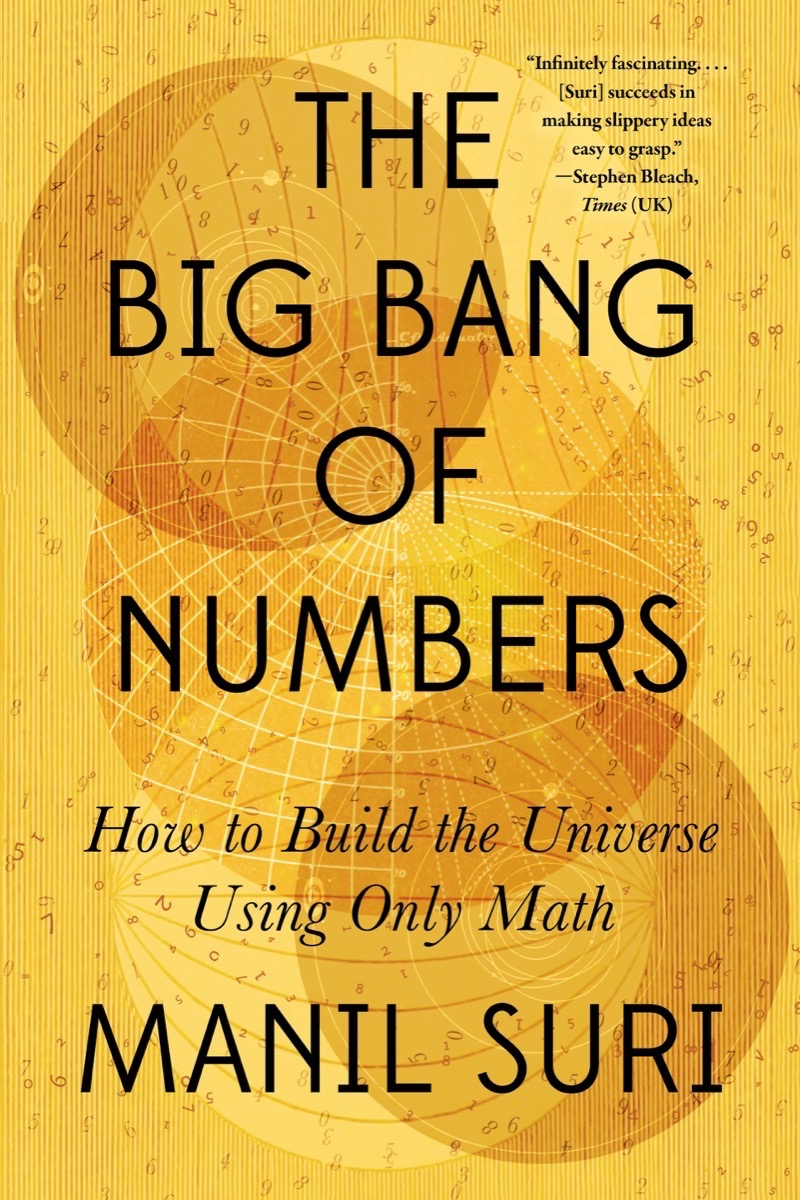What do you think?
Rate this book


384 pages, Paperback
First published September 20, 2022
Not exactly what I expected.
I keep hearing that some scientists theorize that the universe we know and love is entirely a creation of pure mathematics. (There is, of course, a Wikipedia page about that.) Can I be excused for seeing this title in the library, and thinking that the book might be a dilettante-level explication of that interesting speculation?
Well, it's really not. The author, Manil Suri, likes math. (So do I.) And he tries to build up math from its foundations: first, the natural numbers, then integers, rational numbers, real numbers, and complex numbers. Then, using the visuals developed: geometry, analytic geometry, higher dimensions, the golden ratio, fractals, infinities, … Finally, "nature" is brought into the picture. He does a pretty good job of arguing for inverse-square behavior of simple gravity and electric fields.
Gripe: Poor Emmy Noether is relegated to a short endnote in the back of the book. She really did show how the big three physics conservation laws (momentum, energy, angular momentum) can be developed using (uh, relatively) simple arguments from symmetry. That's beautiful. It would have been a better book if she got a few pages in the main text, because that's the kind of thing I assumed Suri would have been talking about!
All this is tied together with an offbeat style that ranges from whimsical to daffy. A running gag involves Suri's NYT 2013 article, "How to Fall in Love With Math" which was denied the top spot on some NYT ten-most-discussed list by one of Pope Francis's pronouncements on homosexuality. So Suri promises/threatens to send Francis a copy of the book, and references what he imagines his reaction would be throughout. Sigh, fine.
This might be an OK book to give to a smart middle-schooler who is showing signs of being interested in math and science. (Or you can try One, Two, Three, … Infinity, by George Gamow, which is what got me started.